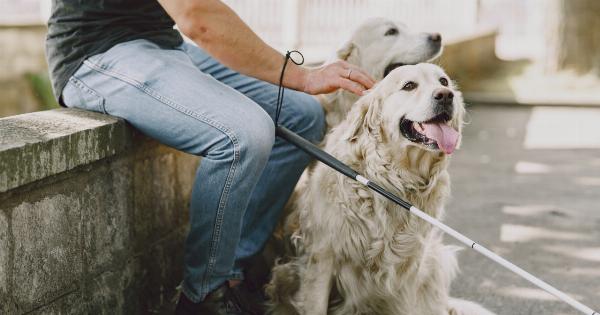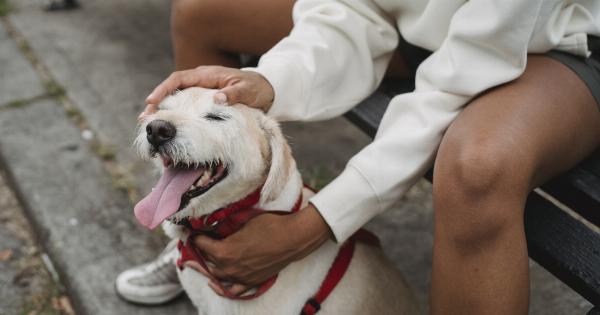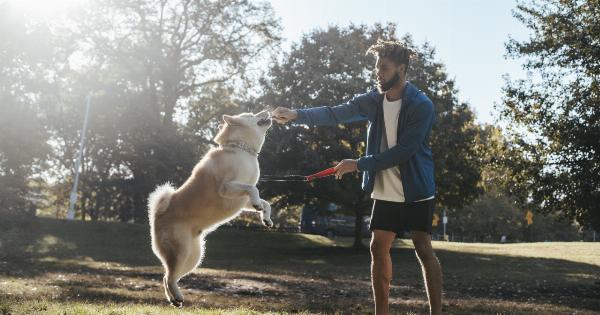Dementia, also known as cognitive dysfunction syndrome, is a condition that affects not only humans but can also occur in our beloved canine companions.
Similar to Alzheimer’s disease in humans, dementia in dogs is a progressive neurodegenerative disorder that primarily affects older dogs. While the exact cause of dementia in dogs is not known, it is believed to be a combination of genetic and environmental factors.
Understanding the symptoms of dementia in dogs can help pet owners identify the condition early and provide appropriate care and support for their furry friends.
1. Disorientation
One of the key symptoms of dementia in dogs is disorientation. You may notice that your dog frequently gets lost or confused even in familiar surroundings.
They may also have difficulty finding their way back home or become easily disoriented inside the house. Disorientation can be particularly distressing for your canine companion, as they may feel anxious and scared.
If you observe your dog exhibiting signs of disorientation, it is important to consult a veterinarian to determine if dementia is the underlying cause.
2. Changes in Sleeping Patterns
Dogs with dementia often experience changes in their sleeping patterns. They may sleep more during the day and become restless or agitated at night. Your dog may also exhibit pacing behavior or wander aimlessly during the night, unable to settle down.
These disruptions in sleep can lead to a decline in their overall well-being and may also affect their ability to interact and engage with their environment. If you notice significant changes in your dog’s sleep patterns, it is crucial to seek veterinary advice.
3. Loss of Housetraining
Another symptom commonly associated with dementia in dogs is a loss of housetraining. Dogs that were previously well-trained may start having accidents indoors or forget their usual housetraining routines.
They may urinate or defecate in inappropriate places and seem unaware or confused about their actions. It is important not to scold or punish your dog for these accidents, as they are not deliberate. Instead, consult a veterinarian to rule out any underlying medical conditions and discuss management strategies.
4. Altered Social Interactions
Dogs experiencing dementia may show changes in their social interactions. They may become withdrawn and lose interest in activities they used to enjoy.
Your once sociable and friendly dog may start to avoid interactions with family members or other pets in the household. They may also exhibit signs of confusion or distress when faced with new or unfamiliar situations.
These changes in social behavior can be heartbreaking for pet owners but with proper care and support, you can help your dog navigate through this challenging phase.
5. Disrupted Learning and Memory
Dementia in dogs can greatly impact their ability to learn and remember things. They may have difficulty following familiar commands or forget behaviors that were once second nature to them.
Your dog may also experience difficulties in recognizing people or other pets they have known for a long time. As the disease progresses, these memory deficits can become more pronounced, making it important for owners to provide extra support, routine, and patience when interacting with their beloved furry companions.
Conclusion
Dementia, or cognitive dysfunction syndrome, can be a challenging condition for both dogs and their owners.
However, with awareness and understanding of the key symptoms, pet owners can take steps to provide the best possible care for their canine friends. If you suspect your dog may be showing signs of dementia, consult a veterinarian who can help diagnose the condition and provide guidance on appropriate management strategies.
With love, support, and proper care, you can ensure a comfortable and fulfilling life for your dog, even in the face of dementia.





























